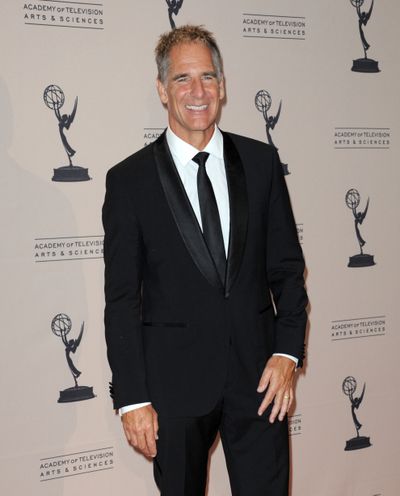‘Big Easy’ does it for Bakula
‘NCIS: New Orleans’ brings Bakula to prime time

Q: Many fans still remember you for “Quantum Leap,” the early 1990s show about a physicist who time travels. At the end of every episode, you’d land inside the next adventure, glance around and mutter, ‘Oh, boy.’ ”
A: That was in the first script. That was part of the convention that Don (Bellisario, the creator) came up with, which was genius, with the “leap in” and the “leap out.” That was the hook to bring people in next week. I never said it the same way twice. I know I had one “Oy vey.”
Q: Then you stepped into another cult franchise, playing Capt. Archer in “Star Trek: Enterprise.” How on earth did you please all those tough sci-fi fanboys and fangirls?
A: These sci-fi fans are phenomenal in the standards that they hold you to. But I came into “Enterprise” with some notoriety in the sci-fi world, so people that never watched “Star Trek,” when I got “Enterprise,” all of a sudden they jumped on the “Star Trek” bandwagon. It’s been a good marriage.
Q: Now you’re in the latest version of the “NCIS” franchise, this one set in New Orleans. Will this be the same “NCIS” fans know and love? (The show premieres Tuesday on CBS.)
A: I’m trying to say to people that it’s going to be the same but different. Look, the “NCIS” franchise is beyond successful. I’ve never been a part of anything as wildly successful as this show has been. It’s the most watched show on the planet. I can’t get my head around that.
Q: Your character is based on D’Wayne Swear, who really did run the NCIS unit in New Orleans and now serves as a technical adviser on the show. What’s he like?
A: The real D’Wayne is a lot like this guy that I’m playing. He’s hugely passionate. He absolutely loves his job. I met him on the phone. I was getting background. He said, “I’m at your disposal. You can call me any time you want. Well, no, don’t call me on Thursday, because I’m helping out on a case that’s out in such and such a parish.” I’m like, “Wait a minute, I thought you were retired?” He said, “Well semi-retired. Now it’s a pretty big case, and so they asked me to come in.” He loves his work. He has his own way of doing it. He’s a little bit of, I think “rebel” might be too strong of a word, but he gets the job done. He’s not always super-worried about what the correct procedure is or the rules are. He knows everybody in town. He knows all the police in each parish that we go to.
Q: You’re already correcting people’s pronunciation of “New Orleans.” It’s not “Nawlins,” right?
A: The locals, they cringe at that. And they cringe at New Or-LEANS. It’s “New OR-lins.”
Q: You’re not a Louisiana native, so how did you work on the accent?
A: Well, I work with a dialect coach whom I’ve worked with for probably over 20 years, Jessica Drake. She’s pretty famous in the business. We’ve done New York cops, we’ve done Appalachia. I’ve always loved dialects. I did it many times in the theater.
Q: You started shooting in the middle of summer, when the Louisiana heat and humidity were at their peak. How are you dealing?
A: It’s difficult. It has been difficult on the crew. We’ve had people with heatstroke; we’ve had many different challenging situations already. You just melt. I mean, it’s not pretty. You’re chasing somebody, and when it’s over you’re completely saturated. I grew up in St. Louis, and I don’t know if you’ve ever been to St. Louis in the middle of summer. There are days in the summer sometimes, weeks in the summer, where the temperature can be over 100 degrees and the humidity can be 100 percent. I’m not a stranger to this. But I haven’t lived in it for this amount of time for a very long time.